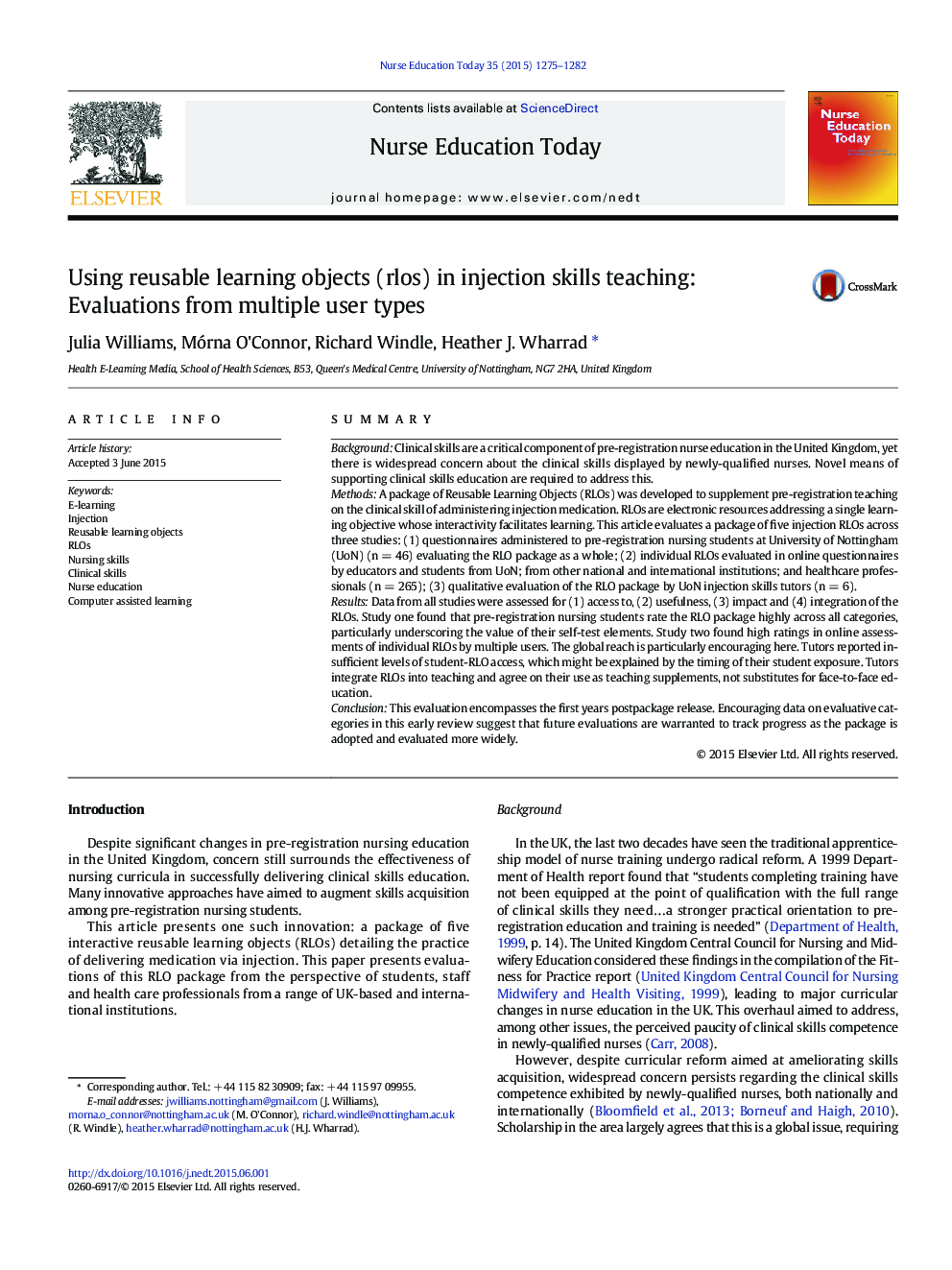| Article ID | Journal | Published Year | Pages | File Type |
|---|---|---|---|---|
| 367950 | Nurse Education Today | 2015 | 8 Pages |
•A package of five Reusable Learning Objects (RLOs), addressing concerns regarding pre-registration clinical skills acquisition has been evaluated.•Multiple user perspectives across a wide geographical spread were gathered using mixed methods focusing on access, usefulness, impact and integration.•Applicability of the RLO platform for supplementing pre-registration injection skills education has been demonstrated.•The RLO platform has wider applicability in supporting clinical skills education.
SummaryBackgroundClinical skills are a critical component of pre-registration nurse education in the United Kingdom, yet there is widespread concern about the clinical skills displayed by newly-qualified nurses. Novel means of supporting clinical skills education are required to address this.MethodsA package of Reusable Learning Objects (RLOs) was developed to supplement pre-registration teaching on the clinical skill of administering injection medication. RLOs are electronic resources addressing a single learning objective whose interactivity facilitates learning. This article evaluates a package of five injection RLOs across three studies: (1) questionnaires administered to pre-registration nursing students at University of Nottingham (UoN) (n = 46) evaluating the RLO package as a whole; (2) individual RLOs evaluated in online questionnaires by educators and students from UoN; from other national and international institutions; and healthcare professionals (n = 265); (3) qualitative evaluation of the RLO package by UoN injection skills tutors (n = 6).ResultsData from all studies were assessed for (1) access to, (2) usefulness, (3) impact and (4) integration of the RLOs. Study one found that pre-registration nursing students rate the RLO package highly across all categories, particularly underscoring the value of their self-test elements. Study two found high ratings in online assessments of individual RLOs by multiple users. The global reach is particularly encouraging here. Tutors reported insufficient levels of student-RLO access, which might be explained by the timing of their student exposure. Tutors integrate RLOs into teaching and agree on their use as teaching supplements, not substitutes for face-to-face education.ConclusionThis evaluation encompasses the first years postpackage release. Encouraging data on evaluative categories in this early review suggest that future evaluations are warranted to track progress as the package is adopted and evaluated more widely.
